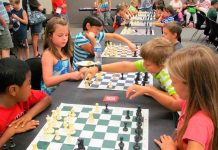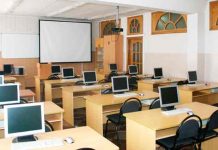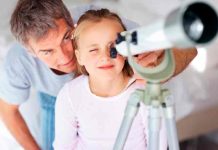МЕТОДИЧЕСКАЯ РАЗРАБОТКА ОТКРЫТОГО УРОКА
Жидченко Е.К., учитель английского языка СМАЛ
10 Д класс
Урок по теме: “SPACE EXPLORATION” № 3
Тема урока: Exploring the Heavens
Продолжительность урока: 40 мин.
Цели урока:
-
Образовательные:
-
обучение говорению на тему освоения космоса с использованием технической лексики;
-
Развивающие:
-
развитие навыков монологического высказывания, грамматически и фонетически правильно оформляя речь.
3.Воспитательные
-
воспитание интереса к освоению космоса, к будущей профессии инженера-ракетостроителя.
Тип урока: урок-конференция
Методическая цель урока: использование метода проектов при изучении темы “Освоение космоса”.
Планируемые знания, умения и навыки:
-
учащиеся должны уметь употреблять изученную техническую лексику в речи;
-
учащиеся должны подготовить сообщения по заданным темам, используя материал пособия “Fly” или самостоятельно найти материал в интернете или других источниках;
-
учащиеся должны выступить с сообщениями об основных вехах освоения космоса, используя компьютерную презентацию;
-
учащиеся должны уметь отвечать на поставленные вопросы, аргументируя свою точку зрения.
Технологии, используемые на уроке: информационно-коммуникационные, технология игрового обучения
Оборудование: компьютер “Notebook”, проектор, экран, стенные газеты.
Дидактический материал: учебники “Opportunities” pre—intermediate, “Opportunities in Russia” pre—intermediate, учебное пособие “Fly”, мультимедийные энциклопедии “Encarta”, “Groliar”, материалы сайта НАСА, журнал “Америка”, энциклопедический словарь юного астронома.
План урока
-
Организационный момент. Постановка целей урока.
-
Выступления учащихся с сообщениями в форме конференции.
-
Ответы на вопросы аудитории.
-
Подведение итогов конференции.
-
Определение домашнего задания.
ХОД УРОКА
-
Организационный момент.
Teacher: Good morning, everyone!
We welcome you at our scientific-practical conference devoted to space exploration performed by both Russian cosmonauts and American astronauts. On the Eve of the Day of Cosmonautics in our country which is celebrated on the 12 th of April we will speak about some milestones in exploring the heavens.
There are some honorable guests at our conference, teachers, head-teachers, leaders and authorities.
They want to listen to us and may be they will take part in our conversation.
We have already spoken about heroic deeds of people in space and it’s time to sum up our knowledge.
Why do people explore space? That is the question!
-
Выступления учащихся.
Pupil 1: Because of people’s curiosity (учащийся выступает с сообщением о причинах освоения космоса).
Question: Do you believe in astrology?
Suggested answer: I don’t. But the early astronomers were also astrologers. They thought to foretell the future.
Teacher: How was it begun? What was the first?
Pupil 2: Sputnik Zemli (учащийся выступает с сообщением о запуске искусственного спутника Земли советскими учеными).
Question: What animals did Americans launch into space before the humans?
Suggested answer: American scientists launched monkeys, then dogs.
Teacher: The Father of Russian cosmonautics was K. Tsiolkovskiy. Who was the Father of Russian space-vehicles constructions? And whose name does our university bare?
Pupil 3: S. P. Koroloyov’s (учащийся говорит о выдающемся ученом-ракетостроителе С.П.Королеве, чье имя носит аэрокосмический университет).
Question: What did S.P. Koroloyov construct in the time of World War II?
Suggested answer: He constructed special jet propulsion weapon called “Katyusha”.
Teacher: What kind of spaceships were the first ones in the orbit of our Earth?
Pupil 4: Vostok and Mercury (учащийся выступает с сообщением об одноместных летательных аппаратах, сконструированных в США и в России).
Question: When did the first American in outer space John Glenn fly into space for the second time?
Suggested answer: He flew there in 1998 when he was 80 years old.
Teacher: The man, whose name is known all over the world for his bravery in space. Who is he?
Pupil 5: Y. Gagarin (учащийся выступает с сообщением о человеке, впервые покорившем космос).
Question: Why do we consider Gagarin a hero?
Suggested answer: He was the first. He didn’t know what was waiting for him, whether he would come back or not.
Teacher: What was further? What about spacecraft for 2 and more members of the crew?
Pupil 6: They were Voskhod and Gemini (учащийся выступает с сообщением об аппаратах для двоих космонавтов или астронавтов).
Question: Do you know any incidents happened to A. Lyonov’s mission.
Suggested answer: One is when A. Leonov managed to get back after performing EVA after some difficulties. Another is when he was lost after landing in Siberia and found several days later.
Teacher: Soyuz and Apollo — a series of multiple-member spacecraft. What happened to them?
Pupil 7: Information about Soyuz and Apollo.
Question: Why was it necessary to rendezvous Apollo and Soyuz ?
Suggested answer: In the time of “the iron curtain” that rendezvous showed the co-operation between two systems: socialism and capitalism.
Teacher: What companion of the Earth attracted the greatest attention among space explorers?
Pupil 8: It was the Moon. Unmanned Luna missions were organized (учащийся выступает с сообщением о беспилотных полетах на Луну).
Question: Where were Lunokhod I and II left after their mission?
Suggested answer: Both Lunokhods were left on the surface of the moon.
Teacher: How did they explore the nearest planet of the Earth?
Pupil 9: People were launched on the moon (учащийся выступает с сообщением о полетах американских астронавтов на ближайший спутник земли).
Question: What did American astronaut E. Mitchell say after returning from the moon?
Suggested answer: When he saw the photo of a Russian man P. Ivanov he said that that man he saw on the moon and that he helped the astronauts to launch form the planet.
Teacher: In order to stay in space longer it was necessary to build some kind of space homes. What were and are they like?
Pupil 10: They were Salute, Skylab, Mir and now it is Alpha (учащийся выступает с сообщением о космических станциях).
Question: When did our pupils of the lyceum visit the Centre of Cosmonauts Training?
Suggested answer: In 1999 a group of pupils of our lyceum went to Moscow for the Youth Euro Club Summit and at that time an excursion to the Centre of Cosmonauts training was organized.
Teacher: Why are artificial satellites an important part in our ordinary lives?
Pupil 11: Artificial Satellites, Hubble telescope etc. are necessary for the Russian economics, military purposes, and weather forecasts .
Question: Do you know who invented the telescope?
Suggested answer: It was the great Italian inventor and astronomer Galileo Galiley.
Teacher: What were the ambitious programs of space explorations and did they come true?
Pupil 12: Yes, they did. They were Pioneer 10 and Voyager Mission (учащийся выступает с сообщением о кораблях, запущенных за пределы солнечной системы).
Question: What would you like to send to the alien civilization?
Suggested answer: I think that the best thing to send there would be cubic Rubika.
Teacher: What kind of agency was organized in the USA in 1958 in response of Soviet success in space?
Pupil 13: It was NASA (учащийся выступает с сообщением о космическом агентстве США).
Question: How is space exploration developed nowadays?
Suggested answer: It has become a daily routine indeed. Launching space vehicles by both countries has been made regularly and constantly. It provides the developing of science and industry in both countries.
Teacher: Space research costs billions of dollars. Some people think that money would be better spend on more practical projects here on Earth. What do you think?
Pupils: They discuss the problem.
-
Подведение итогов урока- конференции.
Teacher: So, dear friends, we have spoken about the main milestones of space exploration and I hope you’ll be the next to serve our country in exploring the Heavens.
-
Определение домашнего задания.
Your home task for the next lesson is: to make up dialogues about your future profession of an air craft constructor, aviation transport engineer etc.
Преподаватель английского языка Жидченко Е.К.





